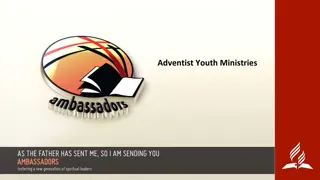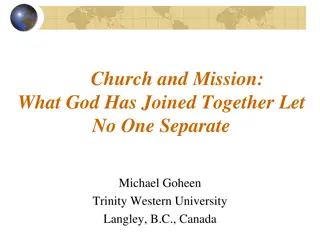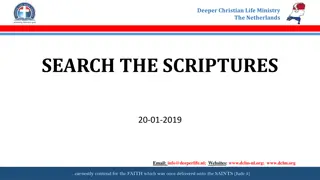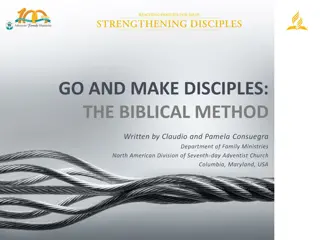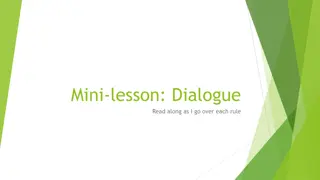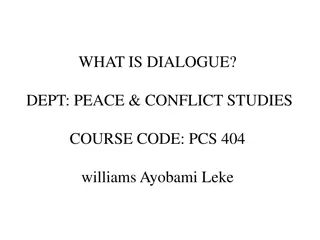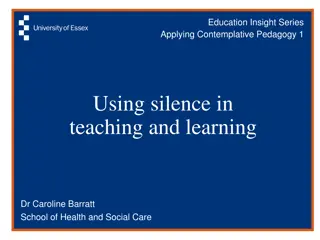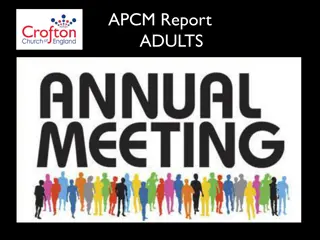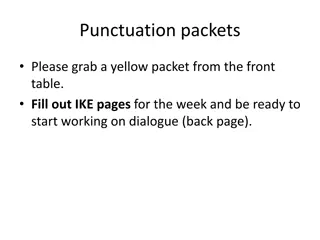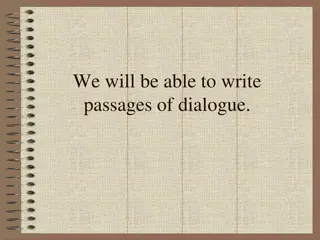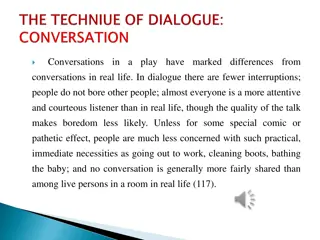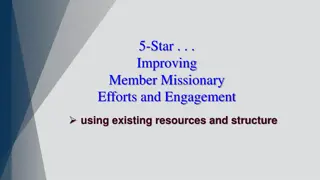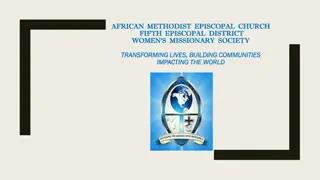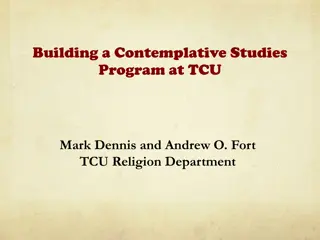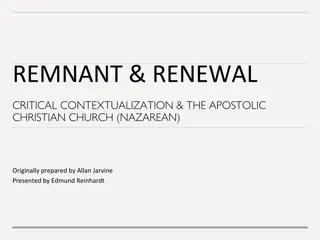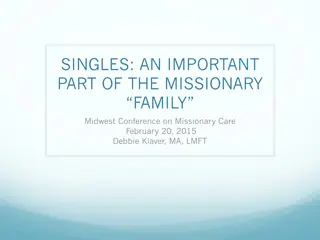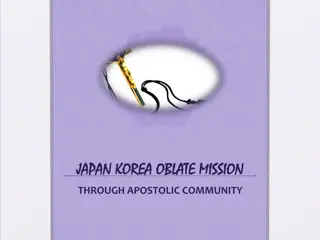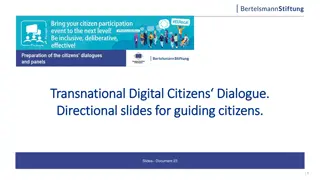Contemplative Dialogue and Missionary Discipleship
John of Damascus emphasizes the virtue of discernment as the crown of all virtues. Through introspective questions and dialogue, the content explores various aspects of faith, community engagement, social justice, and cooperation with diverse sectors. It delves into personal dreams for a more inclusive Church, challenges hindering active participation in mission work, ways to support community members serving society, and the importance of teamwork and evaluation in promoting shared responsibility. The content also touches on the exercise of authority within the Church, the development of lay ministries, and the need for continuous formation to be effective missionary disciples in a synodal Church setting.
Uploaded on Feb 23, 2025 | 2 Views
Download Presentation

Please find below an Image/Link to download the presentation.
The content on the website is provided AS IS for your information and personal use only. It may not be sold, licensed, or shared on other websites without obtaining consent from the author.If you encounter any issues during the download, it is possible that the publisher has removed the file from their server.
You are allowed to download the files provided on this website for personal or commercial use, subject to the condition that they are used lawfully. All files are the property of their respective owners.
The content on the website is provided AS IS for your information and personal use only. It may not be sold, licensed, or shared on other websites without obtaining consent from the author.
E N D
Presentation Transcript
John of Damascus According to John of Damascus, the virtue of discernment "is greater than any other virtue; and is the queen and crown of all the virtues"
PRAYING IN THE LIGHT OF THE SCRIPTURES
10 Foci For our Contemplative Dialogue What is my dream for the Church so that it can become more outward looking, more missionary, especially towards those on the margins? How is God speaking to us through voices we sometimes ignore? What space is there for the voice of minorities, especially people who experience poverty, marginalization, or social exclusion? What enables or hinders speaking up courageously, candidly, and responsibly in our local Church and in society? How do prayer and liturgical celebrations actually inspire and guide our common life and mission in our community?
What hinders the baptised from being active in mission? How does the community support its members who serve society in various ways (social and political involvement, scientific research, education, promoting social justice, protecting human rights, caring for the environment, etc.)? How are divergences of vision, or conflicts and difficulties addressed? What particular issues in the Church and society do we need to pay more attention to? How does the Church dialogue with and learn from other sectors of society: the spheres of politics, economics, culture, civil society, and people who live in poverty? To what extent do we share our journey with members of other Christian traditions and denominations? What fruits have we drawn from walking together?
How is authority or governance exercised within our local Church? How are teamwork and co-responsibility put into practice? How are evaluations conducted and by whom? How are lay ministries and the responsibility of lay people promoted? Is there freedom to exercise our particular ministry in the Church and participate in this common work of discernment and decision-making? What additional formation do I need to be a missionary disciple? What tools are necessary for the Church to be truly synodal, listening and journeying together?
Matthew 14:13-21 Then he broke the loaves and gave them to the disciples, and the disciples gave them to the crowds. And they all ate and were satisfied. And they took up twelve baskets full of the broken pieces left over. And those who ate were about five thousand men, besides women and children.


